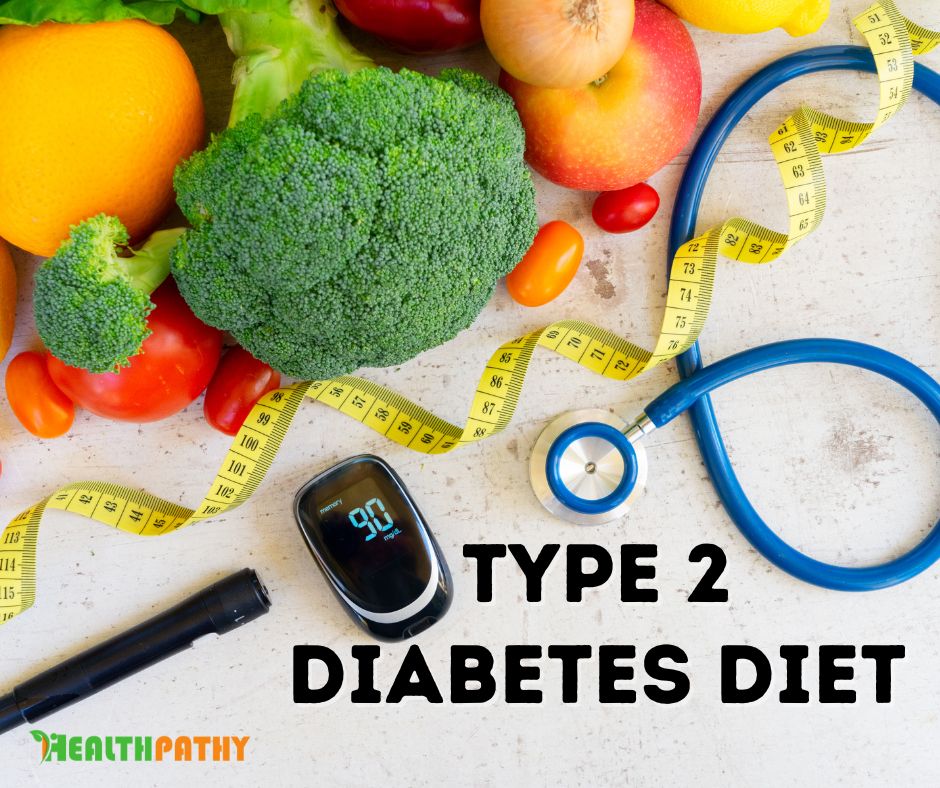In today’s fast-paced world, the prevalence of type 2 diabetes is on the rise. This chronic condition can be managed effectively with lifestyle changes, and the cornerstone of diabetes management is a well-balanced diet. In this comprehensive guide, we’ll explore the ins and outs of a type 2 diabetes diet, providing you with the knowledge and tools needed to take control of your health.
Type 2 Diabetes
Before diving into dietary recommendations, it’s crucial to understand the basics of type 2 diabetes. This condition is characterized by insulin resistance, where the body’s cells do not respond effectively to insulin, leading to elevated blood sugar levels.
Building a Balanced Plate
The Importance of Carbohydrates
Carbohydrates play a significant role in managing type 2 diabetes. However, not all carbs are created equal. Focus on complex carbohydrates like whole grains, legumes, and vegetables, which have a slower impact on blood sugar levels.
Portion Control
Controlling portion sizes is vital for managing blood sugar. Use measuring cups and learn to estimate portion sizes visually to prevent overeating.
Essential Nutrients for Diabetics
Fiber
Fiber helps stabilize blood sugar levels and promotes a feeling of fullness. Incorporate fiber-rich foods like oats, beans, and broccoli into your diet.
Lean Proteins
Proteins are essential for muscle health and blood sugar regulation. Opt for lean sources such as chicken, turkey, fish, and tofu.
Healthy Fats
Not all fats are bad. Include sources of healthy fats like avocados, nuts, and olive oil in your diet to support heart health and insulin sensitivity.
Meal Planning and Timing
Frequent, Balanced Meals
Eating smaller, balanced meals throughout the day can help prevent blood sugar spikes and crashes. Aim for three main meals and healthy snacks.
Timing Matters
Pay attention to when you eat. Some people find that spacing meals and snacks evenly throughout the day helps maintain stable blood sugar levels.
Special Considerations
Glycemic Index
Understanding the glycemic index (GI) of foods can be beneficial. Foods with a low GI are digested more slowly, causing a gradual rise in blood sugar.
Alcohol and Sweets
Limit alcohol consumption and sugary treats, as they can cause rapid blood sugar spikes.
Physical Activity
Regular exercise is a powerful tool in managing type 2 diabetes. Incorporate both aerobic and strength training exercises into your routine.
Monitoring and Medications
Blood Sugar Monitoring
Regularly monitor your blood sugar levels as advised by your healthcare provider to track your progress and adjust your diet and medications accordingly.
Medications
In some cases, medication may be necessary to manage type 2 diabetes. Always follow your doctor’s recommendations regarding medication use.
Conclusion
A well-balanced type 2 diabetes diet is essential for managing this condition effectively. By understanding the role of carbohydrates, essential nutrients, meal planning, and physical activity, you can take control of your health and improve your quality of life.
FAQs
1. Can I still enjoy my favorite foods on a type 2 diabetes diet?
Yes, you can enjoy treats occasionally, but it’s essential to monitor portion sizes and balance them with healthier choices.
2. How can I manage my blood sugar levels during special occasions or holidays?
Plan ahead, make smart food choices, and monitor your blood sugar levels closely during celebrations.
3. Is it necessary to count carbohydrates?
Counting carbs can be helpful, but it’s not the only approach. Focus on the quality of carbohydrates and portion control.
4. Can I reverse type 2 diabetes with diet and exercise alone?
In some cases, significant lifestyle changes can lead to diabetes remission. However, it’s crucial to work closely with a healthcare provider.
5. Are there any supplements that can help manage type 2 diabetes?
Some supplements, like chromium and cinnamon, have shown potential benefits, but it’s essential to consult with a healthcare professional before taking any supplements.
Related Articles




Follow us






